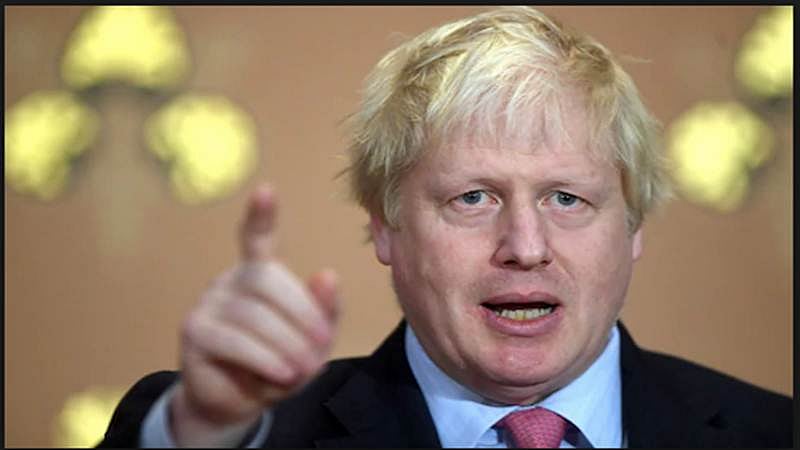The political development in Britain is moving along expected lines. Boris Johnson has failed to persuade the Commons to bail out his Brexit deal. His political advisers had got him to believe that the Parliament would stand by him and winning a clear majority for his Brexit plan was not at all a problem.
Before the deal was placed before the House, he had assured the Brits that the rebel Tories, a section of Labour and Democratic Unionist Party (DUP) members would stand in support of the deal. That did not happen. On the contrary, the Labour stood firm and even declared that it would seek the backing of rebel Tories and the DUP for amendments that would force Boris to drop the deal or accept a softer Brexit. The matter of fact is Labour had already talked to these groups and even the deal was taken for discussion.
Johnson is planning to try to rush through all stages of the Brexit legislation this week. He will attempt to win parliamentary backing for his Brexit deal in a straight yes or no vote on Monday. While Boris is busy manoeouvring, the Labour has already approached the Speaker, John Bercow, to prevent Johnson holding another “vote” on the deal.
The tussle between Boris and Jeremy has entered the second phase. With time running out, camps of both the leaders have become desperate to win the game. Meanwhile, a high-voltage campaign has been launched against Corbyn. Most of the rightist leaders are scared of power passing into the hands of the democratic socialist party.
Meanwhile, the second referendum is gradually emerging as the core consensus element. Senior Labour leader Starmer held that a second referendum was still possible. He also suggested Labour could vote for Johnson’s deal if a second referendum was added to the withdrawal agreement bill, despite the party’s fundamental objections to the terms of the UK’s proposed departure from the EU. Significantly, from the beginning, Corbyn had made it clear that Labour could not vote for Johnson’s deal even with a second referendum attached.
From the beginning it was clear that Boris’s deal would not receive approval of the House. He needs the support of 320 MPs to get any deal over the line but there are only 259 Conservative MPs who are almost certain to vote for any agreement he brings back. He will have to find another 61 votes from other factions in parliament, ranging from hardline Eurosceptics to soft Brexit independents.
Boris Johnson is a prime minister without a mandate. He has never faced an election and has lost every vote he has put to the House of Commons. But he is desperate to get his way. On Saturday, he did not provide much time to the MPs to read and comprehend the bill. They were given just a few hours to scrutinise the terms of the most important decision the country has faced in decades. But he miscalculated badly. Parliament reasserted its sovereignty, voting to withhold approval of his EU deal until MPs have a chance to scrutinise the relevant legislation, effectively forcing him by law to request an extension from the EU.
Boris Johnson is also being warned that embracing a disruptive no-deal Brexit would fuel nationalism in Scotland and risk the future of the union. A brexit must work for the whole UK to see off Scottish nationalism.
Johnson tried his best to make MPs believe that he achieved the impossible in Brussels last week in agreeing to a new deal with the EU. In agreeing that Northern Ireland will effectively be part of the European Union Customs Union and the single market in goods, Johnson has betrayed his own pledge that he would avoid a border between Northern Ireland and the rest of the UK at any cost.
The rightist parties and leaders feel that once Boris’s plan fails to take off, the leftist forces would emerge in a much bigger manner. Already the economic condition of UK is in disarray. The country is facing the threat of scarcity of jobs. They insist Johnson must make clear what the deal means for workers' rights, the NHS and the economy. They have some other questions: The PM’s Brexit plan loosens the economic ties to the EU, so what would be the impact? Why are workers’ rights at stake in Boris Johnson’s Brexit deal? What promises is the government making to protect workers’ rights?
They nurse that a difficult no-deal Brexit would not only damage the economy, it would fuel nationalist claims of a UK that is insensitive to Scotland’s needs. The new prime minister faces considerable challenges, and the future of the UK is high on the list.
Arun Srivastava is a freelance journalist. Views are personal.





